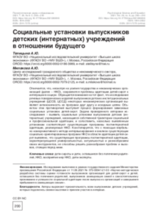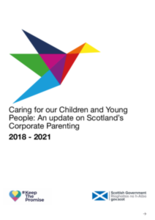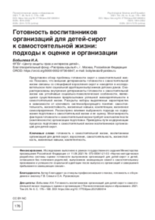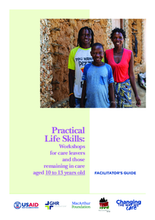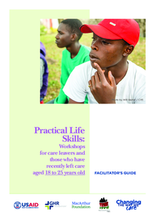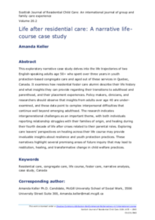Displaying 21 - 30 of 232
“Engaging Fathers – Putting Lessons Into Practice” is a three-part series to share strategies implemented from three of the five State or county agencies: Los Angeles county, California; Hartford, Connecticut; and Prowers county, Colorado. Part one focuses on the strategies developed within Hartford, Connecticut.
Отмечается, что, несмотря на усилия государства и некоммерческих организаций (далее – НКО), сохраняются проблемы адаптации детей-сирот к интеграции в социум. Обращается внимание на тот факт, что исследование речевых поведенческих моделей выпускников детских институциональных учреждений (ЦССВ, ЦССД) некоторых некоммерческих организаций выявляет антиномичность их программ друг другу и исходным целям. Объектом этих противоречий выступает процесс формирования зависимых социальных установок детей-сирот. Задача проведенного авторами исследования – выявить социальные установки выпускников детских (интернатных) учреждений, касающиеся собственной траектории социальной и профессиональной адаптации, и сопоставить, насколько выявленным установкам соответствуют существующие программы постинтернатной адаптации, реализуемые НКО.
Despite the efforts of the state and non-profit organizations (hereinafter — NPOs), the problems of orphans’ adaptation and integration into the society persist. Studies of speech behavioral models in graduates of child care institutions of some non-profit organizations reveal the antinomic nature of their programs and goals. These contradictions revolve around the process of formation of dependent social attitudes in orphaned children. The task of this research is to assess the role that NPOs play in the formation of certain social attitudes of graduates of child care (boarding) institutions (ex-orphanages).
Putting this second national report on corporate parenting before the Scottish Parliament in line with their duties under Children and Young People (Scotland) Act 2014, the Scottish Government provides an overview of corporate parents’ activities over the last three years. The report aims to become a useful learning resource for corporate parents.
Представлен обзор проблемы готовности сирот к самостоятельной жизни. Показано, что внешние детерминанты готовности к самостоятельной жизни связаны со спецификой взросления сирот и находятся в исследовательском поле социальной адаптации выпускников детских домов.
Low readiness for independent living is what underlies the problems of social adaptation in children and adolescents from orphan organizations. This review explores how scientists and practitioners interpret this very concept of readiness for independent living.
This participants handbook has come into being by care leavers for care leavers. It has been developed based on the myriad of challenges shared and experienced by care leavers, hoping with the hope that it will support others leaving care.
This series of resources are designed by care leavers for care leavers to help equip youth for life outside of care, strengthen coping strategies, foster safety nets and community networks. It builds from earlier life skills work that the Kenyan Society of Care Leavers has done, supported by Changing the Way We Care with global best practices.
This series of resources are designed by care leavers for care leavers to help equip youth for life outside of care, strengthen coping strategies, foster safety nets and community networks. This Facilitator's Guide is based on the 10 to 13 guidebook and 18 to 25 guidebook.
This series of resources are designed by care leavers for care leavers to help equip youth for life outside of care, strengthen coping strategies, foster safety nets and community networks. It builds from earlier life skills work that the Kenyan Society of Care Leavers has done, supported by Changing the Way We Care with global best practices.
This article presents findings from an exploratory in-depth qualitative research project with seventeen child welfare professionals exploring their permanency decisions with regards to Looked after Children.
This exploratory narrative case study delves into the life trajectories of two English-speaking adults age 50+ who spent over three years in youth protection-based congregate care and aged out of these services in Quebec, Canada.

